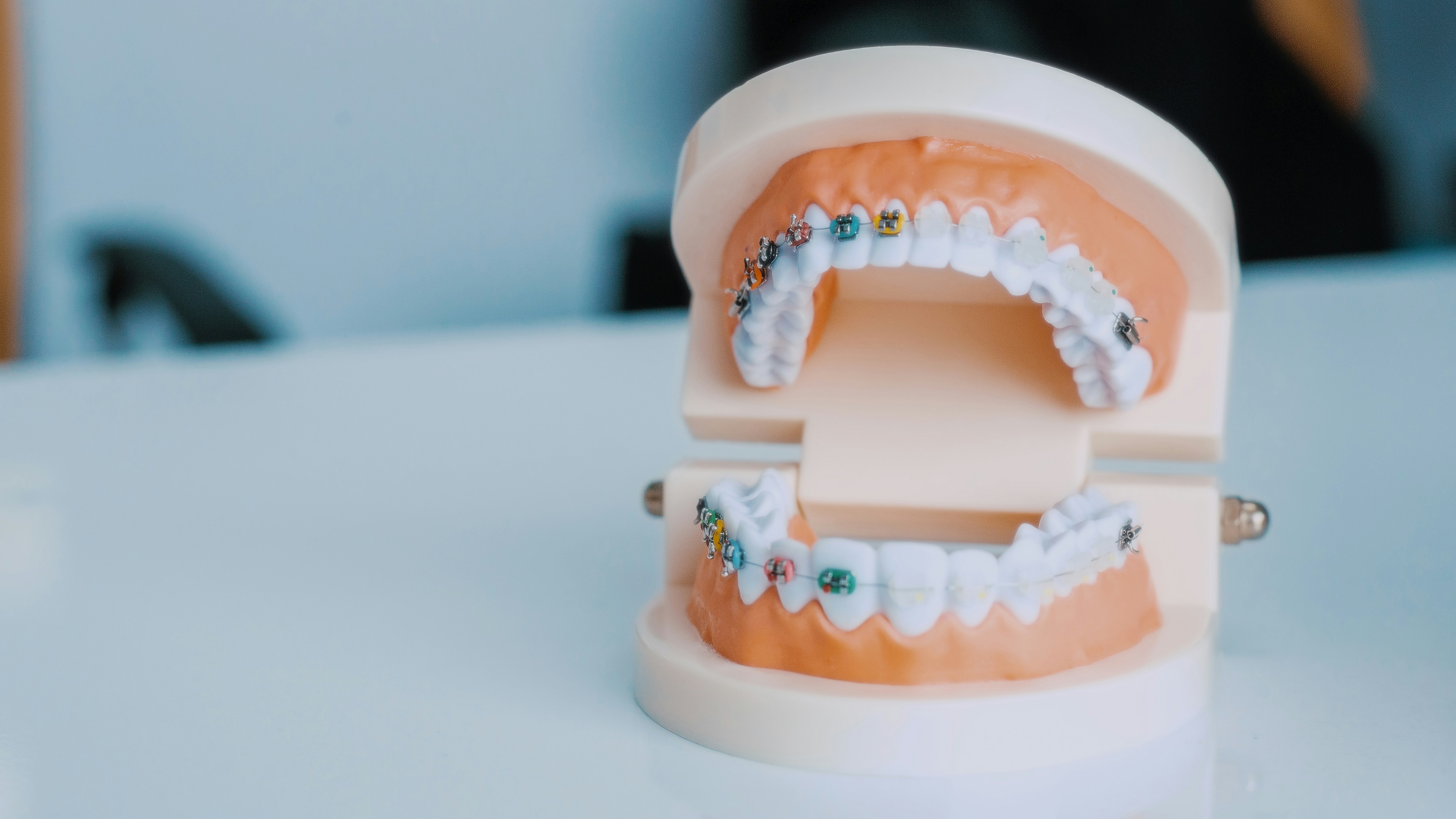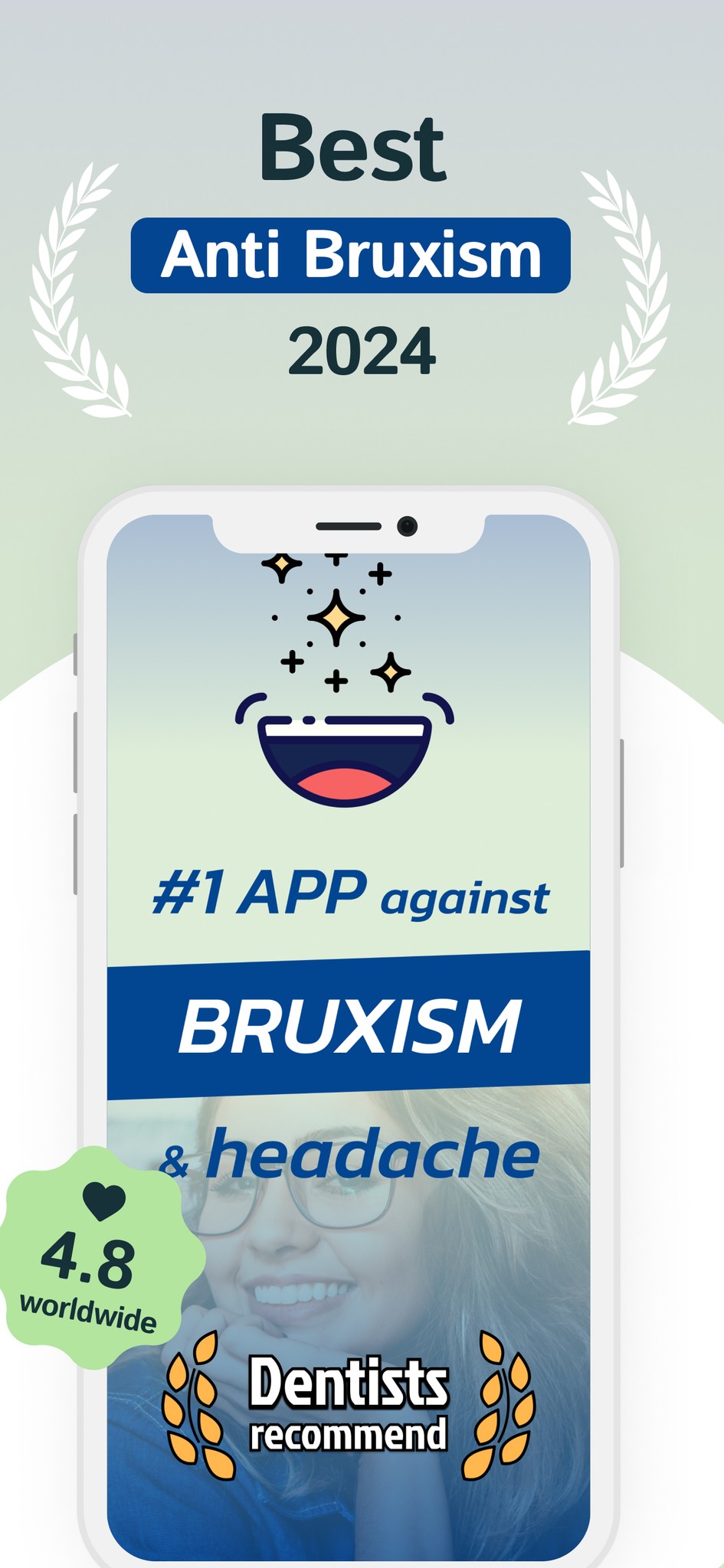
Apr 8, 2024
Can Stress Cause Teeth Grinding?
Can Stress Cause Teeth Grinding? Understanding the Link Between Stress and Bruxism
Teeth grinding, or bruxism, is often associated with stress and anxiety. In fact, many people don’t even realize they grind their teeth until they experience jaw pain or notice their teeth becoming worn. But what exactly is the connection between stress and bruxism? And how can you reduce stress to prevent teeth grinding? In this article, we’ll explore the stress-bruxism relationship and offer solutions for managing both—along with how the Bruxism+ app can help.
How Does Stress Cause Bruxism?
Stress is a common trigger for bruxism, particularly at night. When you’re stressed, your body responds with muscle tension, which can cause you to clench or grind your teeth without even realizing it. This unconscious grinding can happen during the day or while you sleep, often leading to:
Sore jaw muscles in the morning
Headaches
Teeth sensitivity
If you suspect stress is causing your teeth grinding, tracking your symptoms with Bruxism+ can help you recognize patterns and take action.
Physical and Emotional Effects of Stress-Related Bruxism
Bruxism caused by stress can have both physical and emotional consequences. Physically, it can wear down your teeth, cause jaw pain, and even lead to temporomandibular joint (TMJ) disorders. Emotionally, the discomfort from bruxism can worsen stress, creating a vicious cycle.
To break this cycle, it’s crucial to address both stress and teeth grinding. One of the best ways to manage stress-related bruxism is through relaxation techniques, and the Bruxism+ app provides simple exercises you can use anytime to help relax your jaw and calm your mind.
How to Manage Stress-Induced Teeth Grinding
If you think stress is behind your teeth grinding, here are some effective strategies to help manage both:
Practice Mindfulness and Meditation: Taking time to meditate or practice mindfulness can help reduce overall stress levels. Even just a few minutes before bed can make a big difference.
Exercise Regularly: Physical activity is a great way to release tension. Whether it’s going for a walk, practicing yoga, or hitting the gym, regular exercise helps manage stress and can reduce bruxism.
Relax Your Jaw Muscles: Performing jaw exercises, like those recommended in the Bruxism+ app, can relieve tension and prevent teeth grinding during the night.
Using Bruxism+ to Track and Manage Stress
The Bruxism+ app offers a simple way to track your bruxism symptoms, including when and where you feel the most tension. By logging your stress levels and jaw pain, you can identify patterns and triggers that contribute to your bruxism. Additionally, the app provides relaxation exercises designed to reduce jaw tension and alleviate the effects of stress.
Regularly using Bruxism+ to monitor your stress and bruxism symptoms can help you take control of your condition, ensuring that stress doesn’t lead to long-term damage.
Conclusion
There’s a clear connection between stress and teeth grinding, with stress being one of the leading causes of bruxism. By managing stress effectively through relaxation techniques, physical activity, and mindfulness, you can reduce the frequency of teeth grinding. Tools like the Bruxism+ app make it easier to track your symptoms and follow stress-relief exercises, helping you manage both stress and bruxism for better overall health.Gambling can be a fun and exciting activity for many people, but for some, it can spiral into a serious addiction. Recognizing the signs of gambling addiction early is crucial to preventing long-term harm.
Can Stress Cause Teeth Grinding? Understanding the Link Between Stress and Bruxism
Teeth grinding, or bruxism, is often associated with stress and anxiety. In fact, many people don’t even realize they grind their teeth until they experience jaw pain or notice their teeth becoming worn. But what exactly is the connection between stress and bruxism? And how can you reduce stress to prevent teeth grinding? In this article, we’ll explore the stress-bruxism relationship and offer solutions for managing both—along with how the Bruxism+ app can help.
How Does Stress Cause Bruxism?
Stress is a common trigger for bruxism, particularly at night. When you’re stressed, your body responds with muscle tension, which can cause you to clench or grind your teeth without even realizing it. This unconscious grinding can happen during the day or while you sleep, often leading to:
Sore jaw muscles in the morning
Headaches
Teeth sensitivity
If you suspect stress is causing your teeth grinding, tracking your symptoms with Bruxism+ can help you recognize patterns and take action.
Physical and Emotional Effects of Stress-Related Bruxism
Bruxism caused by stress can have both physical and emotional consequences. Physically, it can wear down your teeth, cause jaw pain, and even lead to temporomandibular joint (TMJ) disorders. Emotionally, the discomfort from bruxism can worsen stress, creating a vicious cycle.
To break this cycle, it’s crucial to address both stress and teeth grinding. One of the best ways to manage stress-related bruxism is through relaxation techniques, and the Bruxism+ app provides simple exercises you can use anytime to help relax your jaw and calm your mind.
How to Manage Stress-Induced Teeth Grinding
If you think stress is behind your teeth grinding, here are some effective strategies to help manage both:
Practice Mindfulness and Meditation: Taking time to meditate or practice mindfulness can help reduce overall stress levels. Even just a few minutes before bed can make a big difference.
Exercise Regularly: Physical activity is a great way to release tension. Whether it’s going for a walk, practicing yoga, or hitting the gym, regular exercise helps manage stress and can reduce bruxism.
Relax Your Jaw Muscles: Performing jaw exercises, like those recommended in the Bruxism+ app, can relieve tension and prevent teeth grinding during the night.
Using Bruxism+ to Track and Manage Stress
The Bruxism+ app offers a simple way to track your bruxism symptoms, including when and where you feel the most tension. By logging your stress levels and jaw pain, you can identify patterns and triggers that contribute to your bruxism. Additionally, the app provides relaxation exercises designed to reduce jaw tension and alleviate the effects of stress.
Regularly using Bruxism+ to monitor your stress and bruxism symptoms can help you take control of your condition, ensuring that stress doesn’t lead to long-term damage.
Conclusion
There’s a clear connection between stress and teeth grinding, with stress being one of the leading causes of bruxism. By managing stress effectively through relaxation techniques, physical activity, and mindfulness, you can reduce the frequency of teeth grinding. Tools like the Bruxism+ app make it easier to track your symptoms and follow stress-relief exercises, helping you manage both stress and bruxism for better overall health.Gambling can be a fun and exciting activity for many people, but for some, it can spiral into a serious addiction. Recognizing the signs of gambling addiction early is crucial to preventing long-term harm.
Can Stress Cause Teeth Grinding? Understanding the Link Between Stress and Bruxism
Teeth grinding, or bruxism, is often associated with stress and anxiety. In fact, many people don’t even realize they grind their teeth until they experience jaw pain or notice their teeth becoming worn. But what exactly is the connection between stress and bruxism? And how can you reduce stress to prevent teeth grinding? In this article, we’ll explore the stress-bruxism relationship and offer solutions for managing both—along with how the Bruxism+ app can help.
How Does Stress Cause Bruxism?
Stress is a common trigger for bruxism, particularly at night. When you’re stressed, your body responds with muscle tension, which can cause you to clench or grind your teeth without even realizing it. This unconscious grinding can happen during the day or while you sleep, often leading to:
Sore jaw muscles in the morning
Headaches
Teeth sensitivity
If you suspect stress is causing your teeth grinding, tracking your symptoms with Bruxism+ can help you recognize patterns and take action.
Physical and Emotional Effects of Stress-Related Bruxism
Bruxism caused by stress can have both physical and emotional consequences. Physically, it can wear down your teeth, cause jaw pain, and even lead to temporomandibular joint (TMJ) disorders. Emotionally, the discomfort from bruxism can worsen stress, creating a vicious cycle.
To break this cycle, it’s crucial to address both stress and teeth grinding. One of the best ways to manage stress-related bruxism is through relaxation techniques, and the Bruxism+ app provides simple exercises you can use anytime to help relax your jaw and calm your mind.
How to Manage Stress-Induced Teeth Grinding
If you think stress is behind your teeth grinding, here are some effective strategies to help manage both:
Practice Mindfulness and Meditation: Taking time to meditate or practice mindfulness can help reduce overall stress levels. Even just a few minutes before bed can make a big difference.
Exercise Regularly: Physical activity is a great way to release tension. Whether it’s going for a walk, practicing yoga, or hitting the gym, regular exercise helps manage stress and can reduce bruxism.
Relax Your Jaw Muscles: Performing jaw exercises, like those recommended in the Bruxism+ app, can relieve tension and prevent teeth grinding during the night.
Using Bruxism+ to Track and Manage Stress
The Bruxism+ app offers a simple way to track your bruxism symptoms, including when and where you feel the most tension. By logging your stress levels and jaw pain, you can identify patterns and triggers that contribute to your bruxism. Additionally, the app provides relaxation exercises designed to reduce jaw tension and alleviate the effects of stress.
Regularly using Bruxism+ to monitor your stress and bruxism symptoms can help you take control of your condition, ensuring that stress doesn’t lead to long-term damage.
Conclusion
There’s a clear connection between stress and teeth grinding, with stress being one of the leading causes of bruxism. By managing stress effectively through relaxation techniques, physical activity, and mindfulness, you can reduce the frequency of teeth grinding. Tools like the Bruxism+ app make it easier to track your symptoms and follow stress-relief exercises, helping you manage both stress and bruxism for better overall health.Gambling can be a fun and exciting activity for many people, but for some, it can spiral into a serious addiction. Recognizing the signs of gambling addiction early is crucial to preventing long-term harm.
Our latest stories:


Nov 15, 2024
Dietary Changes That May Help Reduce Bruxism Symptoms


Nov 11, 2024
The Impact of Jaw Alignment on Bruxism: What You Need to Know


Nov 8, 2024
Understanding Sleep Apnea and Its Link to Bruxism
See all posts
Extra
Extra
Extra


